Too many choices? (Iyengar and Lepper, 2000)
People like more choices (usually).
But, with more choices, less likely to choose anything.
And less happy with final choice.
Related to omission bias?
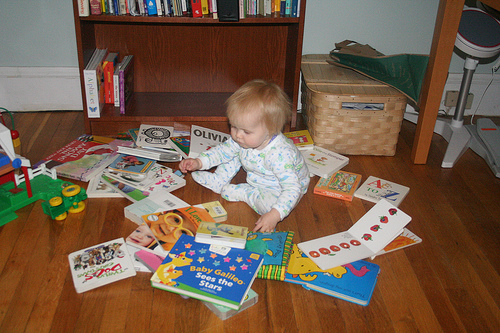
| p = .5 | p = .5 | |
| Option 1 | $5 | $5 |
| Option 2 | $10 | $0 |
Paul owns shares in Company A. During the past year he considered switching to stock in Company B, but he decided against it. He now finds that he would have been better off by $1,200 if he had switched to the stock of Company B.
George owned shares in Company B. During the past year he switched to stock in Company A. He now finds that he would have been better off by $1,200 if he had kept his stock in Company B.
Who feels greater regret?
Mr. C and Mr. D were scheduled to leave the airport on different flights, at the same time. They traveled from town in the same limousine, were caught in a traffic jam, and arrived at the airport 30 minutes after the scheduled departure time of their flights.
Mr. D is told that his flight left on time. Mr. C is told that his flight was delayed, and left only 5 minutes ago.
Who is more upset?
Zeelenberg et al. (1996) (Guilders converted to $):
``risky'' gamble, ($130, .35) vs.
``safe'' gamble, ($85, .65)
Suppose you would learn the outcome of the risky gamble?
Suppose you would learn the outcome of the safe gamble?
When subjects expected to learn the
outcome of the risky gamble, 61% of them chose that gamble.
When they expected to learn the outcome of the safe gamble,
only 23% chose the risky gamble. What subjects tended to avoid
was losing the gamble they chose and learning that they would
have won if they had chosen the other gamble.
Zeelenberg et al. (1996) (Guilders converted to $):
``risky'' gamble, ($130, .35) vs.
``safe'' gamble, ($85, .65)
Suppose you would learn the outcome of the risky gamble?
Suppose you would learn the outcome of the safe gamble?
When subjects expected to learn the
outcome of the risky gamble, 61% of them chose that gamble.
When they expected to learn the outcome of the safe gamble,
only 23% chose the risky gamble. What subjects tended to avoid
was losing the gamble they chose and learning that they would
have won if they had chosen the other gamble.
Correlate with maximization, unhappiness with choices.
People like more choices (usually).
But, with more choices, less likely to choose anything.
And less happy with final choice.
Related to omission bias?

... Imagine that within a six-month period all benefits and salaries, as well as the price of all goods and services, went up by approximately 25%. You now earn and spend 25% more than before.
Six months ago, you were planning to buy a leather armchair whose price during the 6-month period went up from $400 to $500. Would you be more or less likely to buy the armchair now?
Six months ago, you were planning to sell an antique desk you own, whose price during the 6-month period went up from $400 to $500. Would you be more or less likely to sell your desk?
... Imagine that within a six-month period all benefits and salaries, as well as the price of all goods and services, went up by approximately 25%. You now earn and spend 25% more than before.
Six months ago, you were planning to buy a leather armchair whose price during the 6-month period went up from $400 to $500. Would you be more or less likely to buy the armchair now? [7% more, 38% less]
Six months ago, you were planning to sell an antique desk you own, whose price during the 6-month period went up from $400 to $500. Would you be more or less likely to sell your desk? [43% more, 15% less]
You are ... about to sign a contract with a local firm for the sale of new systems, to be delivered in [2 years].
These computer systems are currently priced at $1,000 apiece but, due to inflation, all prices ... are expected to increase during the next couple of years. Experts' best estimate is that prices ... two years from now will be about 20% higher, with an equal likelihood that the increase will be higher or lower than 20%. ...
A. You agree to sell the computer systems ([now]) at $1200 apiece, no matter what the price of computer systems is at that time.
B. You agree to sell the computer systems at [that year's] prices.
Explaining the effect reduced the choice of A (from 46% originally).
Music dictionary A:
Torn cover and 20,000 entries
CD changer J: holds 5 CDs and has .003% THD
You are ... about to sign a contract with a local firm for the sale of new systems, to be delivered in [2 years].
These computer systems are currently priced at $1,000 apiece but, due to inflation, all prices ... are expected to increase during the next couple of years. Experts' best estimate is that prices ... two years from now will be about 20% higher, with an equal likelihood that the increase will be higher or lower than 20%. ...
A. You agree to sell the computer systems ([now]) at $1200 apiece, no matter what the price of computer systems is at that time.
B. You agree to sell the computer systems at [that year's] prices.
Explaining the effect reduced the choice of A (from 46% originally).
Suppose you bought a case of a good 1982 Bordeaux in the futures market for $20 a bottle. The wine now sells at auction for about $75 a bottle. You have decided to drink a bottle of this wine with dinner. Which of the following best captures your feeling of the cost to you of drinking the bottle?
$75
nothing (paid many years ago)
saved $55
Mr. A was given tickets to lotteries involving the World Series.
He won $50 in one lottery and $25 in the other.
Mr. B was given a ticket to a single, larger, World Series lottery. He won $75.
Who was happier?
Mr. A received a letter from the IRS saying that he made a minor
arithmetical mistake on his tax return and owed $100. He received a
similar letter the same day from his state income tax authority saying
he owed $50. There were no other repercussions from either mistake.
Mr. B received a letter from the IRS saying that he made a minor
arithmetical mistake on his tax return and owed $150.
There were no other repercussions from his mistake.
Who was more upset?
Mr. A bought his first New York State lottery ticket and won $100.
Also, in a freak accident, he damaged the rug in his apartment and had
to pay the landlord $80.
Mr. B bought his first New York State lottery ticket and won $20.
Who was happier?
Mr. A's car was damaged in a parking lot. He had to spend $200 to
repair the damage. The same day the car was damaged, he won $25 in
the office football pool.
Mr. B's car was damaged in a parking lot. He had to spend $175 to
repair the damage.
Who was more upset?
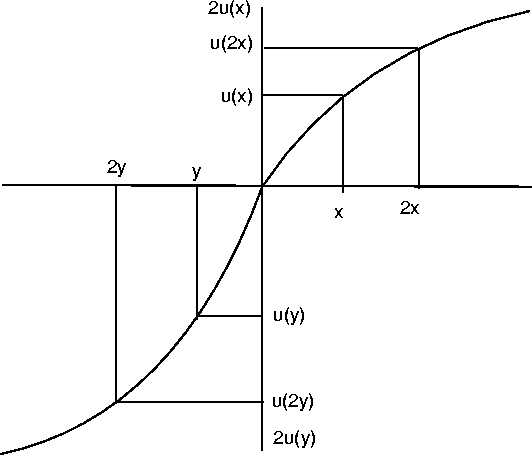
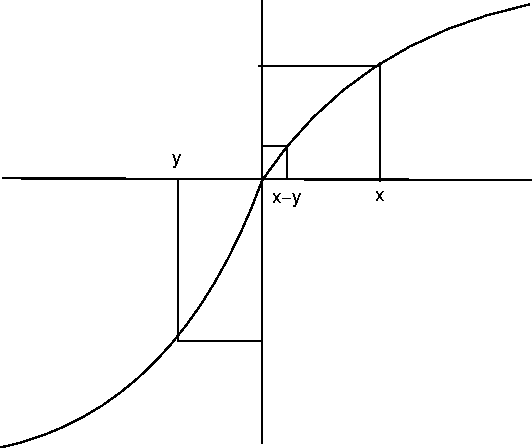
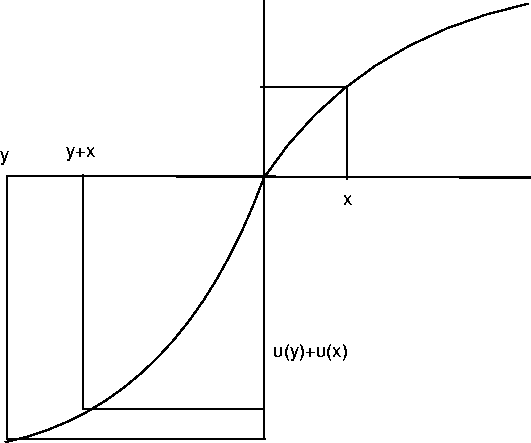
"Imagine that you have decided to see a play where admission is $10 per ticket. As you enter the theater you discover that you have lost a $10 bill. Would you still pay $10 for a ticket for the play?"
"Imagine that you have decided to see a play and paid the admission price of $10 per ticket. As you enter the theater you discover that you have lost the ticket. The seat was not marked and the ticket cannot be recovered."
You are lying on the beach on a hot day. All you have to drink is ice water. For the last hour you have been thinking about how much you would enjoy a nice cold bottle of your favorite brand of beer. A companion gets up to go make a phone call and offers to bring back a beer from the only nearby place where beer is sold, a small run-down grocery store. He says that the beer might be expensive and so he asks you how much you are willing to pay for the beer. (Thaler, 1985, p. 206)
Caviar vs. french fries (Maxwell)
On your way home you buy a tv dinner on sale for $3 at the local grocery store ... Then you get an idea. You call up your friend to ask if he would like to come over for a quick tv dinner and then watch a good movie on tv. Your friend says ``Sure.'' So you go out to buy a second tv dinner. However, all the on-sale tv dinners are gone. You therefore have to spend $5 (the regular price) for a tv dinner identical to the one you just bought for $3. You go home and put both dinners in the oven. When the two dinners are fully cooked, you get a phone call. Your friend is ill and cannot come. You are not hungry enough to eat both dinners. You can not freeze one. You must eat one and discard the other. Which one do you eat?
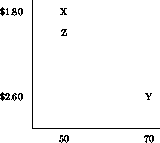
Imagine that you are about to purchase a jacket for $125, and a calculator for $15. The calculator salesman informs you that the calculator you wish to buy is on sale for $10 at the other branch of the store, located 20 minutes' drive away. Would you make the trip to the other store?
... The jacket salesman informs you that the jacket you wish to buy is on sale for $120 at the other branch of the store, located 20 minutes' drive away. Would you make the trip to the other store? (Tversky & Kahneman, 1981, p. 457)
| P Bet | 29/36 probability to win $2 |
| $ Bet | 7/36 probability to win $9 |
``$1,600, 1.5 years from now''
``$2,500, 5 years from now,''
About 600 people are killed each year in Israel in traffic accidents. The ministry of transportation investigates various programs to reduce the number of casualties. Consider the following two programs, described in terms of yearly costs (in millions of dollars) and the number of casualties per year that is expected following the implementation of each program:
| Expected number of casualties | Cost (millions) | |
| Program X | 500 | $55 |
| Program Y | 570 | $12 |
What value of Z would make you indifferent?
| Expected number of casualties | Cost (millions) | |
| Program X | 500 | Z |
| Program Y | 570 | $12 |
Music dictionary B: Good cover and 10,000 entries
CD changer S holds 20 CDs and has .01% THD
Music dictionary:
Torn cover and 20,000 entries
Good cover and 10,000 entries
CD changer J: holds 5 CDs and has .003% THD
CD changer S holds 20 CDs and has .01% THD